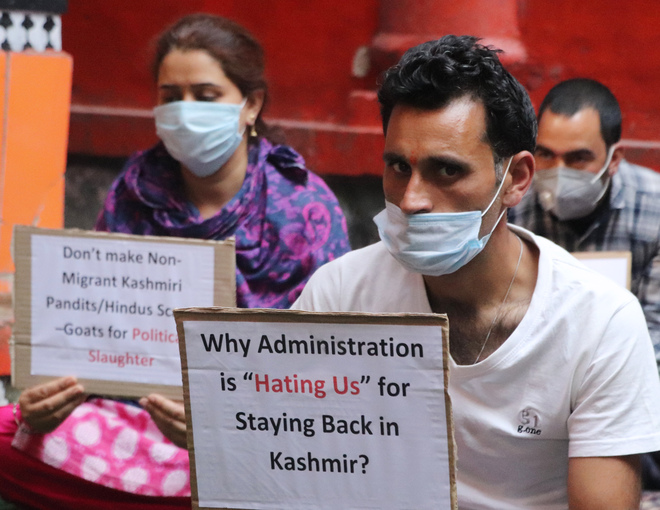New Delhi, February 4
The migrants from Kashmir have expressed disappointment at the Jammu and Kashmir Administration for not including 2.5 % of the Union Government’s Budget 2022-23 for their relief and rehabilitation.
Led by a voluntary organisation, “Reconciliation & Rehabilitation of Migrants”, they alleged that the Department of Disaster Management, Relief, Rehabilitation & Reconstruction, Civil Secretariat, Jammu, had also recommended for inclusion of 2.5% of the annual Budget for Relief, Rehabilitation & Resettlement of Kashmiri migrants vide reference No: OM /DMRRR/Acctts/2020/09 dated 24/02/201.
“The J-K government (Department Of Finance) has denied inclusion of 2.5% of the annual budget of GOI for Resettlement & Rehabilitation of Kashmir Migrants, despite the recommendation from the office of Honorable Prime Minister of India through its communication Ref No. 5321723/2021-TG dated 07/01/2022,” Chairman Satish Mahaldar said.
Mahaldar said the office of Union Home Minister of India had recommended for rehabilitation and relief of Kashmiri migrants.
“We see a larger conspiracy by selective state government bureaucratswho are deliberately discriminating against Kashmiri Migrants on the basis of religious lines,” Mahaldar said.
He said that the JK govt has offered land to neighbouring countries to start business and allowed them to settle in Jammu & Kashmir while making original aboriginals scape goats.
The migrants said that all refugees and displaced persons of Kashmir have the right to full and effective compensation as an integral component of the restitution process.
Mahladar demanded of the UT Administration to frame a National Human Settlement policy to resettle thousands of people/ refugees of JK who intend to return.
Among those who wish to return are “old” groups of refugees, most of who have spent 32 years in exile in neighbouring states of India.
The National Human Settlement policy, should target the establishment of specific residential areas in each village/ District as efforts to enhance proper land utilization and the provision of basic services.
Discussions
Discussions
